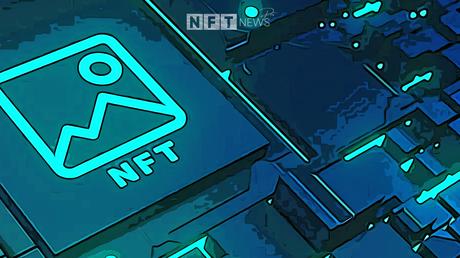
In 2021, non-fungible tokens (NFTs) took the world by storm. Artists, singers, and actors sold NFTs worth millions of dollars. Indian multinational companies like Tech Mahindra and music labels like T-Series joined the NFT trend in the same year that Indian A-list celebrities like Kamal Hassan, Sunil Gavaskar, and Yuvraj Singh released their own NFT collections.
This year, on the other hand, liquidity and trading volumes on the global NFT market have gone down. This is because the crypto market has been going down in recent months.
The Block Research says that NFT sales were $12.22 billion in the second quarter of 2022. This is 63.93% less than the first quarter, when NFT sales were $33.88 billion. Despite the macro market trends, Indian inventors, founders, entrepreneurs, and builders still believe in the revolutionary potential of NFT technology.
In reality, a number of Indian companies are already using NFT technology and showing how blockchain-based asset ownership could have a big impact on industries like real estate, music, and advertising. These Indian businesses are also using NFTs to deal with some of the most important problems, like the Indian agricultural crisis and climate change.
Here are five Indian NFT companies that use the technology in interesting ways:
1) Estate Protocol

Estate Protocol was started by Parv Prabhakar, Ryan Smith, and Cody Coex Foo in 2022 to make it easier for NFTs to be used to own real estate.
Parv said, “We are trying to solve the inefficiencies in the real estate market by making real estate purchasing accessible for the rest of the 90% of the population and democratising the exclusive system, which was previously limited to the elite class.”
The company makes fractional ownership of NFTs possible. This means that investors can split the cost of owning real estate with many other people, which lowers the amount of cash they need to get into the market. “By fractionalizing, we give the average man ownership and control, and he can buy NFTs,” said Parv.
In 2021, the company got $50,000 in a Pre-Seed round. It is trying to get funding of $1 million by September of this year.
2) FanTiger

Prashan Agarwal, who used to be the CEO of Gaana, started FanTiger. It brings together artists and fans by using NFTs. Depending on how well a song does on Spotify, YouTube, Gaana, and other platforms, the owner of a fractionalized NFT for that song may get royalties.
Prashan said, “With music streaming, artists typically hand over copyright and royalty income to platforms and record labels, and they work on a fixed fee. As a result, their income is reduced, and they end up making most of their income (up to 90% in many cases) from events. With FanTiger NFTs, artists and fans can directly own music rights and IPs, earn more through royalty income, and get more upside.”
Sunanda Sharma and Naalayak have both signed with the platform to put out music. It focuses on music in languages like Punjabi, Tamil, Marathi, and Bhojpuri and says that it is working on more collaborations.
3) OffsetFarm

Saurabh Saraf and Ankit Mathur started Offset Farm in 2021 to use NFTs to help deal with climate change. In exchange for non-fungible SPROUT tokens, the company lets investors pre-fund climate projects that are advertised on the site (NFTs).
The company has also started selling an OFFSET token, which is backed by a carbon credit and equal to one tonne of CO2 avoided.
Saurabh said, “SPROUT is symbolic to any small budding plant and our SPROUT token grows and offers users carbon credit. Investors who buy SPROUTs essentially secure offset supply at a discount to market price. We looked into how we could tokenise the project’s carbon credits and offer them to investors.” The company also says that users can access all information about a project through NFTs.
4) Bru Finance

Bru Finance was founded in 2018 by Ashish Anand, Falguni Pandit, and Abhishek Bhattacharya. It is a decentralized platform for lending that lets farmers use NFTs to get loans.
The collateral for the NFTs is agricultural goods, which are shown by warehouse receipts. Then, farmers can use these NFTs as security for bank loans.
Ashish notified, “This is a way for farmers to lock their real-world assets on a custodial platform and get loans against that. We’ve already tokenised over $500 million worth of commodities on our platform and across 1,400 warehouses.”
In the near future, Bru plans to build global partnerships and go after new markets to tokenize real-world assets.
5) Revise

Revise was started by Anil Dukkipatty and Raunaq Vaisoha. It lets developers turn their static NFTs into interactive ones so they can use them with applications and real-world events.
Raunaq said that the company wants to give NFTs this ability to be programmed so that they can be more than just JPEG pictures and become useful tools and gaming assets. Raunaq said, “You have an NFT, we allow developers to write a program that allows users to connect it to apps.”
The company has also worked with the metaverse platform WeMeta to make NFT billboards for advertising in the metaverse. Raunaq said, “By turning static NFTs into dynamic, creators could embed advertisements on them, draw brands, and open up a new revenue stream.”
Leave this field empty if you're human: